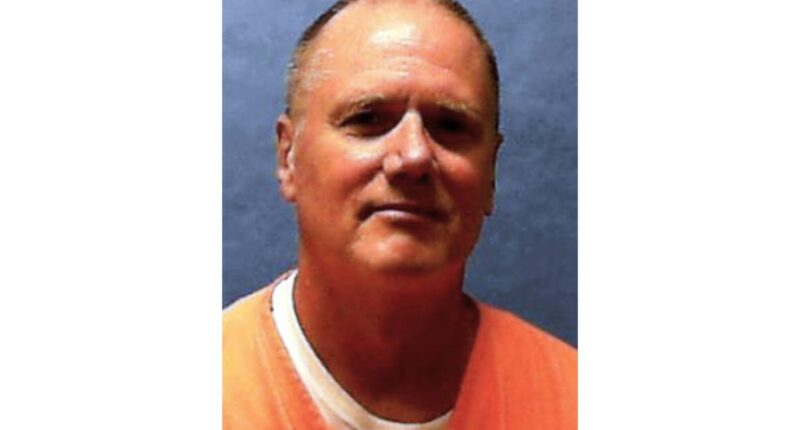Share this @internewscast.com

STARKE, Fla. (AP) — A man in Florida, found guilty of murdering his wife and two children with a machete in 1994, is scheduled for execution on Thursday. This would mark the ninth execution in the state for 2025, setting a new single-year record. Additions to this tally include a 10th execution slated for Aug. 19 and an 11th on Aug. 28.
Governor Ron DeSantis, a Republican, authorized the execution of 60-year-old Edward Zakrzewski via lethal injection at 6 p.m. on Thursday at Florida State Prison near Starke. Zakrzewski’s last request for a stay was declined by the U.S. Supreme Court on Wednesday.
The maximum annual number of executions in Florida, following the U.S. Supreme Court’s reinstatement of the death penalty in 1976, was eight in 2014. This year, Florida has surpassed all other states in executions, with Texas and South Carolina both executing four people each.
Edward Zakrzewski, a former member of the Air Force, was sentenced to death for killing his 34-year-old wife, Sylvia, and their children, Edward, age 7, and Anna, age 5, at their home in Okaloosa County in the Panhandle. According to trial evidence, the murders occurred after Sylvia filed for divorce, and Zakrzewski allegedly stated he would rather kill his family than proceed with the separation.
Sylvia was initially assaulted with a crowbar and then strangled with a rope, according to testimony. The children were murdered with a machete, and Sylvia was struck again with the weapon when Zakrzewski mistakenly thought she survived the earlier attack.
Critics of the execution highlight Zakrzewski’s military background and the narrow jury vote, which was 7-5 in favor of his execution—just over half of the panel. Under current Florida law, such a non-unanimous verdict would not lead to an execution. Despite this, the trial judge issued three death penalties for Zakrzewski.
The Action Network, which organized an anti-execution petition, asked people to call DeSantis’ office and read a prepared script urging a stay of execution for Zakrzewski.
“Florida does not need the death penalty to be safe. This execution will not make us safer, it will simply add another act of violence to an already tragic story. Justice does not require death,” the script reads in part.
Zakrzewski’s lawyers have filed numerous appeals over the years, all of which have been rejected.
Twenty-six men have died by court-ordered execution so far this year in the U.S., and 11 other people are scheduled to be put to death in seven states during the remainder of 2025.
Florida was also the last state to execute someone, when Michael Bernard Bell died by lethal injection on July 15. DeSantis also signed a warrant for the 10th execution this year for Kayle Bates, who abducted a woman from an insurance office and killed her more than four decades ago.
Wednesday night, DeSantis issued a death warrant for Curtis Windom, 59, convicted of killing three people in the Orlando area in 1992. His execution is scheduled for Aug. 28.
Florida uses a three-drug cocktail for its lethal injection: a sedative, a paralytic and a drug that stops the heart, according to the state Department of Corrections.

















